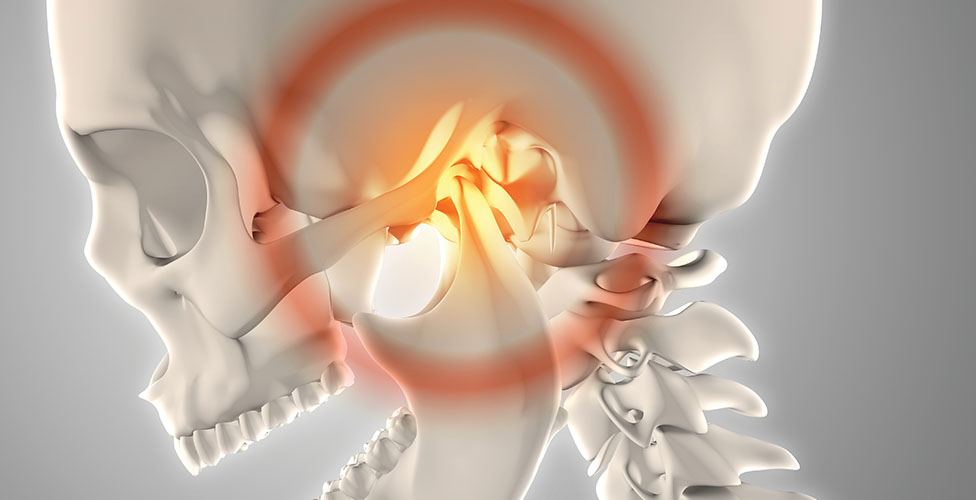TMJ, or temporomandibular joint disorder, results when the joint between your jaw and your skull is placed under stress and becomes inflamed. The symptoms can vary, from pain around the joint area, headaches, and facial pain, to seemingly unrelated symptoms such as shoulder pain, depression, and fatigue. Successful treatment of TMJ depends on identifying the cause of the stress and treating it appropriately.

Diagnosis
Because the cause of the stress can be difficult to diagnose, TMJ diagnosis involves a comprehensive approach. We’ll examine your jaw and teeth, including your jaw alignment, to determine if the cause is dental or from alignment issues. We’ll also look at your general health for sources of stress and examine your skull and neck for injury or abnormalities.
Treatment
Once the source of stress has been determined, we’ll recommend treatment. This could be a single treatment or a combination of solutions. Common treatments include orthotics to reposition your jaw, orthodontal treatment to correct malocclusion or misaligned teeth, physiotherapy or massage, medication, and stretches and exercise.
If you are experiencing facial pain or you suspect you might be suffering from TMJ, call us to book an examination.
